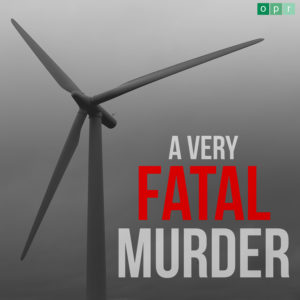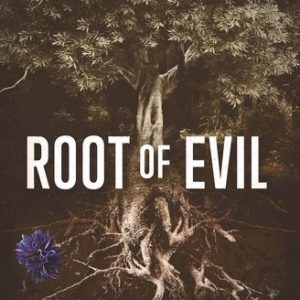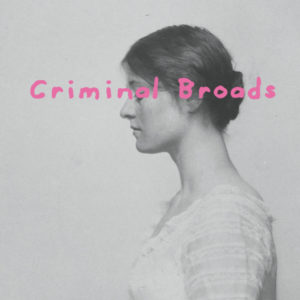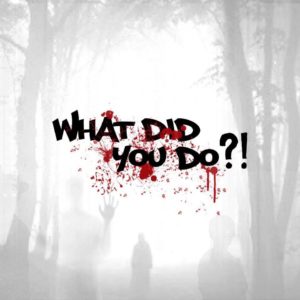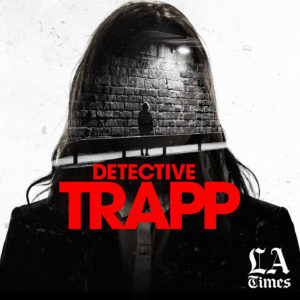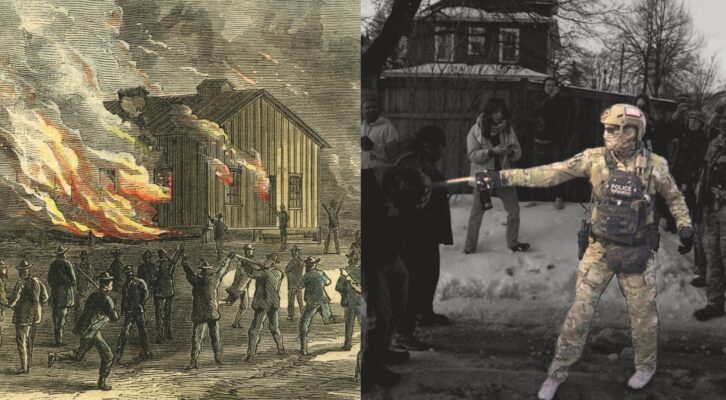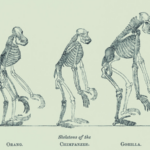For better or worse, 2020 is almost here, and something tells me that it might be kind of stressful! So while there’s still time, let’s stall by reflecting on 2019.
This year has proven many things, including the fact that crime podcasting continues to get stronger, more nuanced, and more willing to take on even the most difficult topics. We’re seeing whole podcasts revolve around full-dimensional character studies, as well as podcasts that cast an unusually wide net—examining the role of crime within immediate and extended families, to explore the circular relationship between origins and aftermath, and make the argument that every tragedy is a family tragedy.
And while there was a time when it seemed like the two main options in this genre were “true crime + humor” or “true crime + no humor,” we now have countless gradations within each, and a growing number of podcasts who don’t fit cleanly into either category. So even if you still can’t imagine voluntarily listening to discussions of crime, you might just find that in 2019, someone was hard at work on just the podcast for you. Any of the 12 exceptional podcasts below would be a great place to start.
Cold
Without a doubt, Cold is one of the most ambitious, sprawling, and absorbing podcasts to drop in 2019, or any other year. In this joint production between KSL and Wondery, reporter Dave Cawley unpacks a treasure trove of documents, journal entries, audio diaries, and deeply disturbing home videos—all related to the unsolved disappearance of Susan Powell, a young Utah woman who vanished ten years ago. Cawley untangles the threads of Susan’s upbringing, family, and rocky marriage, while also painting a vivid portrait of Susan herself; he then takes an equally close look at Susan’s husband, Josh, whose own family background is almost too dysfunctional to be believed. The result is a complicated, tragic, and ever-expanding story that continued to darken long after Susan’s disappearance. Boasting excellent reporting and skillful production—even the occasional, unobtrusive voice actor—Cold is a unique listening experience that’s not to be missed.
Hunting Warhead
While there never seems to be a shortage of murder documentaries, and the past year saw Ted Bundy become a media brand, some types of crime are still so viscerally upsetting that they’re severely underreported. One of the starkest examples is child pornography, which is one reason why Hunting Warhead—a joint production of CBC and Norway’s VG newspaper—is so desperately important. Of course, listeners have every right to avoid the podcast entirely, but to those who might give it a try, it’s important to note that Hunting Warhead does not dwell on the lurid details of child abuse—but rather on the courageous, ingenious, and relentless efforts of hackers, journalists, and law enforcement to track down the perpetrators, and take as many children as possible out of harm’s way. While Hunting Warhead initially zeroes in on one criminal—the creator and administrator of a child pornography website on the dark web—it eventually pans out to ask what makes a child predator, and what we can do to stop the process from repeating. Hunting Warhead certainly doesn’t make for lighthearted listening—but with its incredible reporting, polished production, and deep sensitivity, it’s one of the most remarkable podcasts to appear in recent (or distant) memory.
Culpable
Five years ago, 21-year-old Christian Andreacchio died in an apparent suicide; to this day, his family insists that it was murder. While you might initially wonder if the Andreacchios are letting grief cloud their judgment, Culpable carefully presents the many, many reasons why the official explanation of Christian’s death simply doesn’t add up. With empathy and tact, the podcast also gives the listener a real sense of who Christian was—who his friends, family, and neighbors are—so that you come away with not only an understanding of some fascinating people, but of a Mississippi community that has never been the same without Christian in it. With smart pacing, high production value, and regular episodes devoted to listener questions, Culpable stands out as a unique achievement, even in the impressive podcasting field of 2019.
Passenger List
This mystery-thriller podcast from Radiotopia was a long time coming (or at least it seemed that way to anxious audio drama nerds such as myself), but it’s proven well worth the wait. The podcast follows a young student, Kaitlyn, as she searches for the truth about Atlantic Flight 702—a plane that crashed, or rather disappeared, when Kaityln’s brother was among the passengers. Passenger List mostly favors the “found audio” style of fiction podcasts—incorporating interviews, news footage, phone conversations, secret recordings, and airline announcements—to focus on one passenger per episode, as Kaitlyn and an unexpected ally go further down the rabbit hole of Flight 702. Co-directed and co-written by Lauren Shippen, the creator of the life-affirming wonder that is The Bright Sessions, Passenger List is a fast-paced thriller and deftly constructed mystery, with a lively cast of characters you won’t soon forget.
Cases of Color
Since it first launched in June, this new podcast has focused on crimes involving people of color—particularly cases that remain unsolved, or clouded with lingering questions. Randi, the podcast’s host, takes a particular interest in crimes that have been underreported, and you may find that most of her episode subjects aren’t familiar names. But even when Cases of Color covers investigations that are becoming more well known, like the deaths of Kenneka Jenkins or Kendrick Johnson—who, to be clear, have still only gotten a microscopic fraction of the coverage devoted to, say, JonBenét Ramsey or Natalee Holloway—Randi still has something new to say. Taking a measured, emotionally honest approach, Randi balances careful research with personal perspective, while exploring topics like the dehumanization of minorities, dangers of social media sensationalism, and the lack of respect shown to family members of missing persons.
A Very Fatal Murder, Season 2
In the second season of A Very Fatal Murder, The Onion’s savagely brilliant satire of true crime podcasts, host David Pascall (played by comedian David Sidorov) asks himself what makes a successful second season. “What elevates a true crime podcast from your run-of-the-mill murder porn to a repeatable franchise that keeps audiences coming back?” he muses. “What separates a great second season from a sophomore slump? […] The darker, grittier subject matter? A new crime so complex and titillating that listeners can’t turn away? A murder so gripping, it blows your massively successful first season out of the water? Does a second season like that even exist?” If this podcast is anything to go by, a second season like that does exist. Complete with self-deluding host, spot-on theme music, painfully familiar spoof ads, and even a live reading of the trial verdict (with cameos courtesy of NPR), A Very Fatal Murder sprints down a tightrope without losing its balance.
Motive
With Motive, the Chicago Sun Times and Chicago Public Radio tell a story too astonishing to be made up. In 1994, 13-year-old T.J. Jimenez was convicted of murder, and went to prison protesting his innocence. 16 years later, Jimenez was back on the streets of Chicago, with a certificate of innocence and $25 million in his pocket—awarded to him in compensation for his wrongful imprisonment. What Jimenez did with the money, and the series of events before and after his conviction, make for a gripping tale of crime, punishment, justice, and inequity. Hosted by Pulitzer Prize-winning journalist Frank Main, Motive weaves skillful interviews, thoughtful narration, and firsthand audio footage to tell a story that sometimes resembles a kind of sociological experiment—one that’s messy, complex, and painfully human.
RedHanded
In the maelstrom of 2019, it’s been more important than ever to hang onto the few shreds of stability we have left. One of those is RedHanded, now in its third year. As its popularity rises, the podcast is as incisive, absorbing, and unaffected as ever; Brits Suruthi & Hannah present cohesive rundowns of cases while still maintaining the spirit of a natural conversation – peppering careful research and detailed theories with dry humor (never directed at the victims), friendly banter, and emotionally frank reactions to terrible events. Whether they’re discussing Phil Spector or the Enfield Poltergeist, race politics or victim-blaming, RedHanded’s ability to spin a number of plates in the air have earned them a loyal fanbase, and a spot as Listener’s Choice finalist at the 2019 British Podcast Awards. As the podcast has consistently released one episode per week since its launch, there’s a plentiful back catalog waiting for anyone who hasn’t started listening– and not long to wait for new episodes, once you’re all caught up.
Root of Evil
Root of Evil has some of the darkest, most disturbing content I’ve ever heard in true crime, and it’s also one of the most exceptional podcasts to come out in years. Starting with the story of Fauna Hodel, who was adopted at birth and grew up feeling inherently out of place, the podcast—hosted by Fauna’s daughters—traces her ancestry back to George Hodel, who’s considered by many to be the murderer of Elizabeth Short, aka the Black Dahlia. As it turns out, you can’t take an honest look at the Hodel family without also taking an honest look at appalling abuse—but spotlighting the tragedies of the Hodels is about much more than morbid curiosity. In addition to raising awareness of abuse, giving a platform to victims, and renewing the prospect of justice for Elizabeth Short, Root of Evil is also a powerful testament to the ripple effects of cruelty, and the cyclical nature of generational harm. Much like last year’s Happy Face, Root of Evil demonstrates that the blast radius of any crime is too wide to be measured—wreaking destruction not only on victims and perpetrators, and not only on their families, but on generations yet to come.
Criminal Broads
In 2019, much like 2018, Criminal Broads (currently on hiatus, as its host is on maternity leave) has been one of the most reliably great true crime-history podcasts out there. Host Tori Telfer, who’s written a book on female serial killers and another (upcoming) one on con women, is a friendly expert on the forgotten corners of history, regaling her listeners with tales of women you won’t believe you’d never heard of. Often incorporating interviews with other true crime authors, Tori also devotes episodes to people you have definitely heard of, but with a fresh perspective—a standout example being “ The Women of Jack the Ripper,” a two-part episode that tells the life stories of the Ripper’s five known victims, and delves into the dubious but entertaining theory that Jack the Ripper was a woman. While it would be easy for a podcast on female criminals to veer into a “why should men have all the murderous fun hah hah hah” type of glibness, Criminal Broads never forgets the seriousness of its subject matter—and also never forgets that storytelling can be fun, and that the past isn’t ever quite as distant as it seems.
What Did You Do?!
Even as the world of podcasting continues to gain new perspectives, What Did You Do?! represents a rare and much-needed vantage point in true crime. Hosts Charneil and Dee started the podcast as social workers, and are now both earning degrees in mental health counseling; their professional and academic backgrounds inform their discussions of crime, as do their personal experiences with mental health and family trauma. But the grim subject matter doesn’t always make for grim listening: What Did You Do?! is full of off-the-cuff, self-deprecating humor that will appeal to listeners who like podcasts that come across as spontaneous discussions. As entertaining as it is insightful, What Did You Do?! feels less like a podcast than a party, where you’ve managed to stumble upon the most interesting conversation in the room.
Detective Trapp
This new podcast from Wondery is partly a character study of Detective Julissa Trapp, the only woman on the homicide squad of the Anaheim Police Department. Trapp drinks whisky, throws axes, swims with sharks, wears expensive shoes and prays at every meal; like everyone from Anaheim, she’s grown up in the shadow of Disneyland, but she’s also been immersed in crime since joining the police at age 20. The podcast follows Trapp as she throws her energy into investigating a string of disappearances—all of marginalized women who’ve been overlooked by law enforcement, despite repeated pleas from their families. Though Trapp claims in an early episode that “I don’t have time for feelings,” her dogged search for justice suggests otherwise, as it leads her to an ultimate showdown with a killer. Hosted and written by Christopher Goffard, the creator of Dirty John, Detective Trapp introduces its listeners to a remarkable person, and follows her down an unforgettable path.







